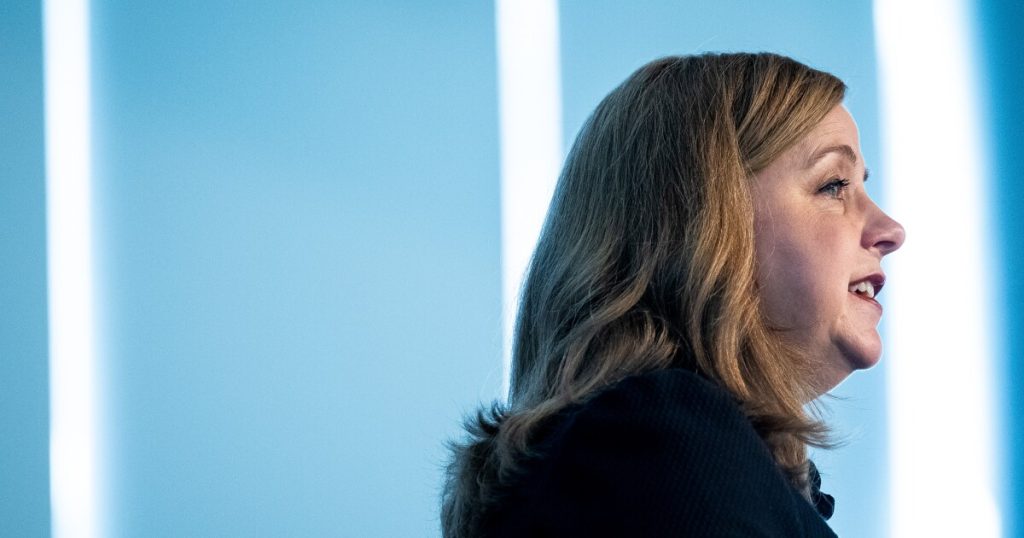Bloomberg News
The Federal Reserve’s top regulatory official is considering lifting a ban on central bank employees owning digital assets, but some experts question whether doing so will really help the central bank recruit and retain top talent.
During a speech Tuesday, Federal Reserve Vice Chair for Supervision
“I certainly wouldn’t trust someone to teach me to ski if they’d never put on skis, regardless of how many books and articles they have read,” she said during her speech. “We should consider whether limits on staff investment activities may be a barrier to recruiting and retaining examiners with the necessary expertise and for existing staff to better understand the technology.”The suggestions would undo a 2022 advisory from the Office of Government Ethics, which barred federal employees, including those at the Fed, from holding crypto assets due to potential conflicts of interest.
Aaron Klein, senior fellow at Brookings Institute, called Bowman’s idea “odd,” noting that there’s little evidence to support that digital asset ownership helps with recruitment.
“[It’s] conjecture that the Fed is having trouble recruiting people and that relaxing financial assets and trading is the solution,” Klein said. He added that the Fed already faces too many conflicts of interest related to financial speculation among employees.
“It’s awfully weird for Bowman to be saying that the Fed has lost out on talented top staff because they couldn’t hold crypto or because they couldn’t actively trade it,” Klein said.
Peter Conti-Brown, associate professor of financial regulation at University of Pennsylvania, said the idea is “terrible,” arguing that understanding crypto requires no personal investment.
He also dismissed the notion that the Fed struggles with hiring or retention, noting the roles “are among the most sought after jobs in government.”
“Bank supervisors did not become sophisticated in bank risk management because they have a checking account. They become sophisticated as bank risk managers through the complex undertaking of bank examination,” he said. “What we need are steely-eyed, clearheaded financial risk managers who can assess crypto potential and pitfalls from a position of studied neutrality.”
“Turning bank examiners into crypto hype artists is not the way to accomplish that goal,” he added.
Allowing Fed employees to hold digital currencies would align with a more
Some industry stakeholders see the move as a positive development. Michele Alt, co-founder of the advisory firm Klaros Group, said the existing ban on crypto ownership reflects the Biden administration’s “antipathy” toward digital assets, but added that times are changing — and the policy should, too.
“She makes an excellent point that it is important for current banking agency employees to understand crypto, especially post-GENIUS Act,” Alt said in a statement. “Eliminating the crypto ownership prohibition will also enhance the agencies’ ability to recruit new employees with crypto expertise who are very likely to have crypto holdings they would be reluctant to divest.”
The Fed has also begun to roll back a number of initiatives that created greater oversight of digital currencies. It recently ended a program created in 2023 to supervise how banks use emerging technologies and scaled back
In 2022, the Federal Reserve System employed

